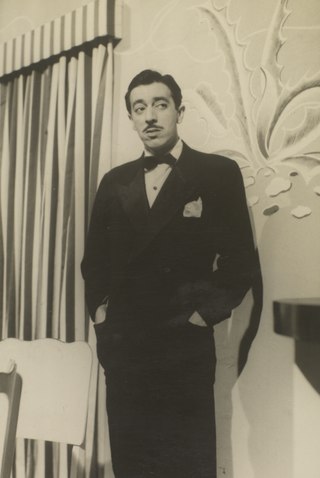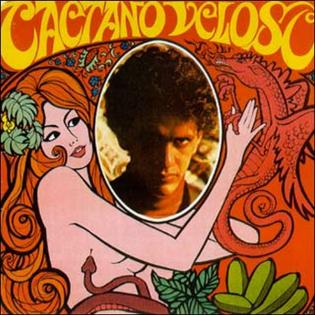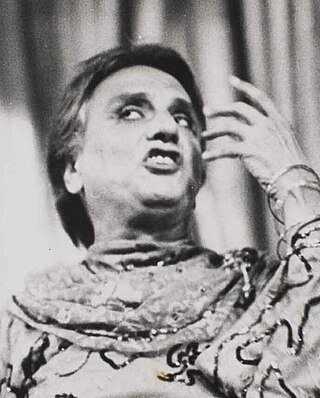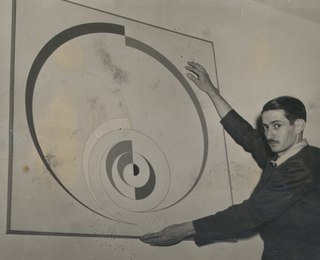Marcel Camus was a French film director. He is best known for Orfeu Negro, which won the Palme d'Or at the 1959 Cannes Film Festival and the 1960 Oscar for Best Foreign Language Film.

Grande Otelo was the stage name of Brazilian actor, comedian, singer, and composer Sebastião Bernardes de Souza Prata. Otelo was born in Uberlândia, and was orphaned as a child. He kept running away from the families that adopted him; only when he took up art did his life become settled.

José Lewgoy was a Brazilian actor. He is recognizable to many art-house cinema fans for his role as Don Aquilino in Werner Herzog's 1982 film Fitzcarraldo.

Marília Soares Pêra was a Brazilian actress, singer and theater director. Throughout her career, she won around 80 awards, acting in 49 plays, 29 soap operas and more than 20 films.

Caetano Veloso is the debut solo album by the artist of the same name, released in Brazil in 1968. He had released Domingo the year before in collaboration with Gal Costa. It was one of the first Tropicália efforts, and features arrangements by Júlio Medaglia, Damiano Cozzella, and Sandino Hohagen, as well as an eclectic assortment of influences, demonstrating the "antropofagia" of the Tropicália movement. Sounds from psychedelia, rock, pop, Indian music, bossa nova, Bahian music and other genres appear on the album. It includes the hit songs "Alegria, Alegria", "Tropicália", and "Soy loco por ti, América".

The creation of art in the geographic area now known as Brazil begins with the earliest records of its human habitation. The original inhabitants of the land, pre-Columbian Indigenous or Natives peoples, produced various forms of art; specific cultures like the Marajoara left sophisticated painted pottery. This area was colonized by Portugal in the 16th century and given the modern name of Brazil. Brazilian art is most commonly used as an umbrella term for art created in this region post Portuguese colonization.

Hélio Oiticica was a Brazilian visual artist, sculptor, painter, performance artist, and theorist best known for his participation in the Neo-Concrete Movement, for his innovative use of color, and for what he later termed "environmental art," which included Parangolés and Penetrables, like the famous Tropicália. Oiticica was also a filmmaker and writer.

Carlos Oscar Reichenbach Filho was a Brazilian filmmaker.
Victor di Mello was a Brazilian actor, film director and screenwriter born in Rio de Janeiro, Brazil.

Odete Lara, was a Brazilian film actress. She appeared in 37 films between 1954 and 1994, including two films shown at the Cannes Film Festival. In 1957 she was awarded with Prêmio Saci.

Hugo Carvana de Hollanda was a Brazilian actor and film director. He appeared in more than 110 films and television shows between 1954 and 2014.
Lee Jaffe is an American artist, photographer, filmmaker, musician, and producer.
Rodolfo Arena was a Brazilian actor. He appeared in 90 films between 1920 and 1980. He starred in the 1974 film Sagarana: The Duel, which was entered into the 24th Berlin International Film Festival.

Jorge Pires Ferreira, known professionally as Jorge Dória, was a Brazilian actor and humorist. In 1962 he was awarded with Prêmio Saci.
Maria Gladys Mello da Silva, known as Maria Gladys, is a Brazilian actress.

Ivan Ferreira Serpa was a Brazilian painter, draftsman, printmaker, designer, and educator active in the concrete art movement. Much of his work was in geometric abstractionism. He founded Grupo Frente, which included fellow artists Lygia Clark, Helio Oiticica, and Franz Weissmann, among others, and was known for mentoring many artists in Brazil.
Vera Chaves Barcellos is a Brazilian artist and educator. She was featured in the Radical Women show at the Brooklyn Museum in 2018.

Miguel Rio Branco is a Brazilian photographer, painter, and filmmaker. His work has focused on Brazil and included photojournalism, and social and political criticism.
seja marginal, seja herói is a 1968 artwork by the Brazilian visual artist Hélio Oiticica.












